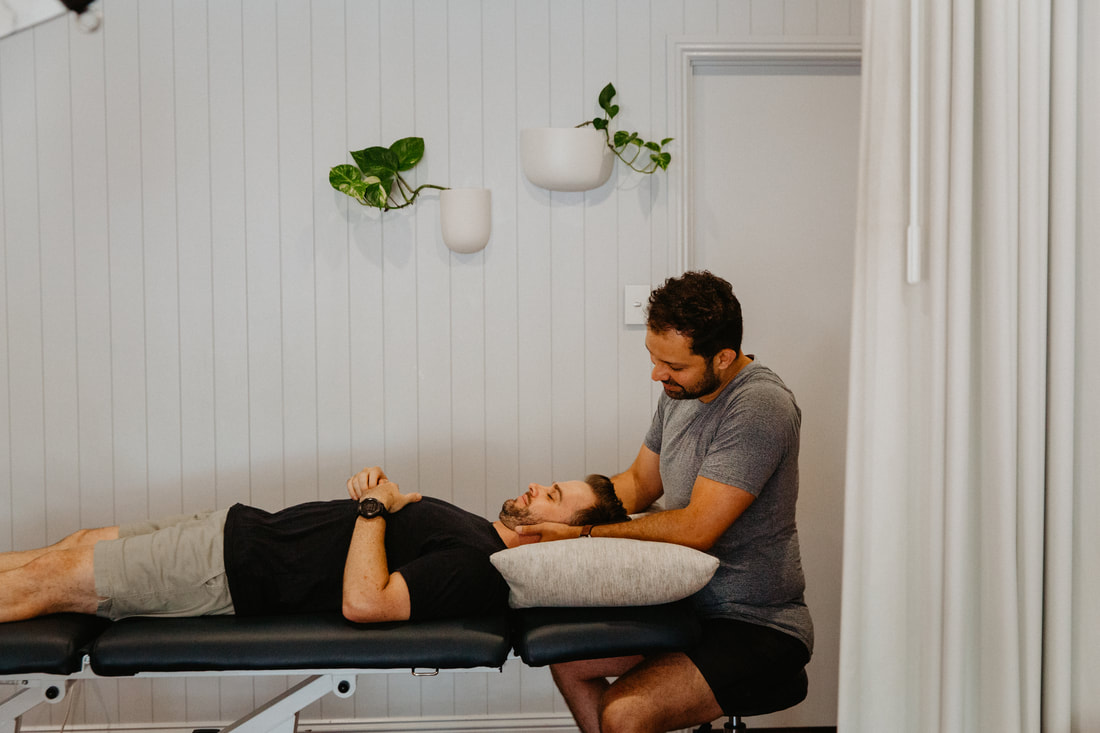Parkinson's Disease physiotherapy Brisbane southside.
What is Parkinson's Disease?
Parkinson's Disease is a progressive neurological disorder that affects movement. It is caused by the degeneration of dopamine-producing neurons in the brain, leading to a decrease in dopamine levels. Dopamine is a neurotransmitter that plays a crucial role in regulating movement, so when dopamine levels are low, it can result in symptoms such as tremors, stiffness, and difficulty with balance and coordination. Parkinson's Disease is a chronic condition that usually develops slowly over time and affects primarily older adults.
How is Parkinson's Disease diagnosed?
Parkinson's Disease is diagnosed based on a combination of medical history, physical examination, and certain diagnostic tests such as MRI, PET, and CT scans. There is no specific test for Parkinson's Disease, and diagnosis can sometimes be challenging as symptoms can be similar to other conditions.
How can physiotherapy help in Parkinson's Disease?
Physiotherapy can play a crucial role in managing Parkinson's Disease by helping to improve mobility, balance, and flexibility. Physiotherapists can develop individualized exercise programs that focus on stretching, strengthening, and aerobic conditioning. They can also teach patients how to perform specific exercises that target Parkinson's-related symptoms, such as gait training, balance exercises, and coordination drills. Additionally, physiotherapy can help with pain management, improving sleep, and maintaining a healthy weight.
In addition to exercise and movement-based therapies, physiotherapy can also provide education and support to patients and their families. Physiotherapists can help patients develop strategies to manage the daily challenges of living with Parkinson's Disease, such as how to conserve energy, reduce falls, and maintain independence. They can also provide advice on equipment and assistive devices that can make daily activities easier.
How can clinical Pilates help with Parkinson's Disease?
Clinical Pilates is a form of exercise that focuses on controlled movements, breath control, and body awareness. It can help improve core stability, posture, balance, and flexibility, all of which can be challenging for people with Parkinson's Disease. Clinical Pilates can also help to increase the mind-body connection, improve mental focus, and reduce stress and anxiety. It is an excellent complement to traditional physiotherapy and can be modified to suit the specific needs and abilities of people with Parkinson's Disease.
Parkinson's Disease is a complex condition that requires a multidisciplinary approach to management. Physiotherapy plays a crucial role in improving mobility, balance, and flexibility, reducing pain and stiffness, and maintaining independence. Clinical Pilates is an excellent complementary therapy that can help improve core stability, posture, and balance. If you or a loved one is living with Parkinson's Disease, talk to your physiotherapist about how they can help.
Our physiotherapists can develop a customised treatment plan tailored to each individual's needs and goals. With the help of physiotherapy, many people with neurological conditions can improve their movement and function, reduce pain, and improve their quality of life. If you or a loved one has a neurological condition and would like to find out more about how our team can help, please don't hesitate to give us a call on 07 3706 3407 or email us at [email protected]. We are happy to accept CDMPs and NDIS patients.
Parkinson's Disease is a progressive neurological disorder that affects movement. It is caused by the degeneration of dopamine-producing neurons in the brain, leading to a decrease in dopamine levels. Dopamine is a neurotransmitter that plays a crucial role in regulating movement, so when dopamine levels are low, it can result in symptoms such as tremors, stiffness, and difficulty with balance and coordination. Parkinson's Disease is a chronic condition that usually develops slowly over time and affects primarily older adults.
How is Parkinson's Disease diagnosed?
Parkinson's Disease is diagnosed based on a combination of medical history, physical examination, and certain diagnostic tests such as MRI, PET, and CT scans. There is no specific test for Parkinson's Disease, and diagnosis can sometimes be challenging as symptoms can be similar to other conditions.
How can physiotherapy help in Parkinson's Disease?
Physiotherapy can play a crucial role in managing Parkinson's Disease by helping to improve mobility, balance, and flexibility. Physiotherapists can develop individualized exercise programs that focus on stretching, strengthening, and aerobic conditioning. They can also teach patients how to perform specific exercises that target Parkinson's-related symptoms, such as gait training, balance exercises, and coordination drills. Additionally, physiotherapy can help with pain management, improving sleep, and maintaining a healthy weight.
In addition to exercise and movement-based therapies, physiotherapy can also provide education and support to patients and their families. Physiotherapists can help patients develop strategies to manage the daily challenges of living with Parkinson's Disease, such as how to conserve energy, reduce falls, and maintain independence. They can also provide advice on equipment and assistive devices that can make daily activities easier.
How can clinical Pilates help with Parkinson's Disease?
Clinical Pilates is a form of exercise that focuses on controlled movements, breath control, and body awareness. It can help improve core stability, posture, balance, and flexibility, all of which can be challenging for people with Parkinson's Disease. Clinical Pilates can also help to increase the mind-body connection, improve mental focus, and reduce stress and anxiety. It is an excellent complement to traditional physiotherapy and can be modified to suit the specific needs and abilities of people with Parkinson's Disease.
Parkinson's Disease is a complex condition that requires a multidisciplinary approach to management. Physiotherapy plays a crucial role in improving mobility, balance, and flexibility, reducing pain and stiffness, and maintaining independence. Clinical Pilates is an excellent complementary therapy that can help improve core stability, posture, and balance. If you or a loved one is living with Parkinson's Disease, talk to your physiotherapist about how they can help.
Our physiotherapists can develop a customised treatment plan tailored to each individual's needs and goals. With the help of physiotherapy, many people with neurological conditions can improve their movement and function, reduce pain, and improve their quality of life. If you or a loved one has a neurological condition and would like to find out more about how our team can help, please don't hesitate to give us a call on 07 3706 3407 or email us at [email protected]. We are happy to accept CDMPs and NDIS patients.
Who to book in with:
Emma Cameron
|

